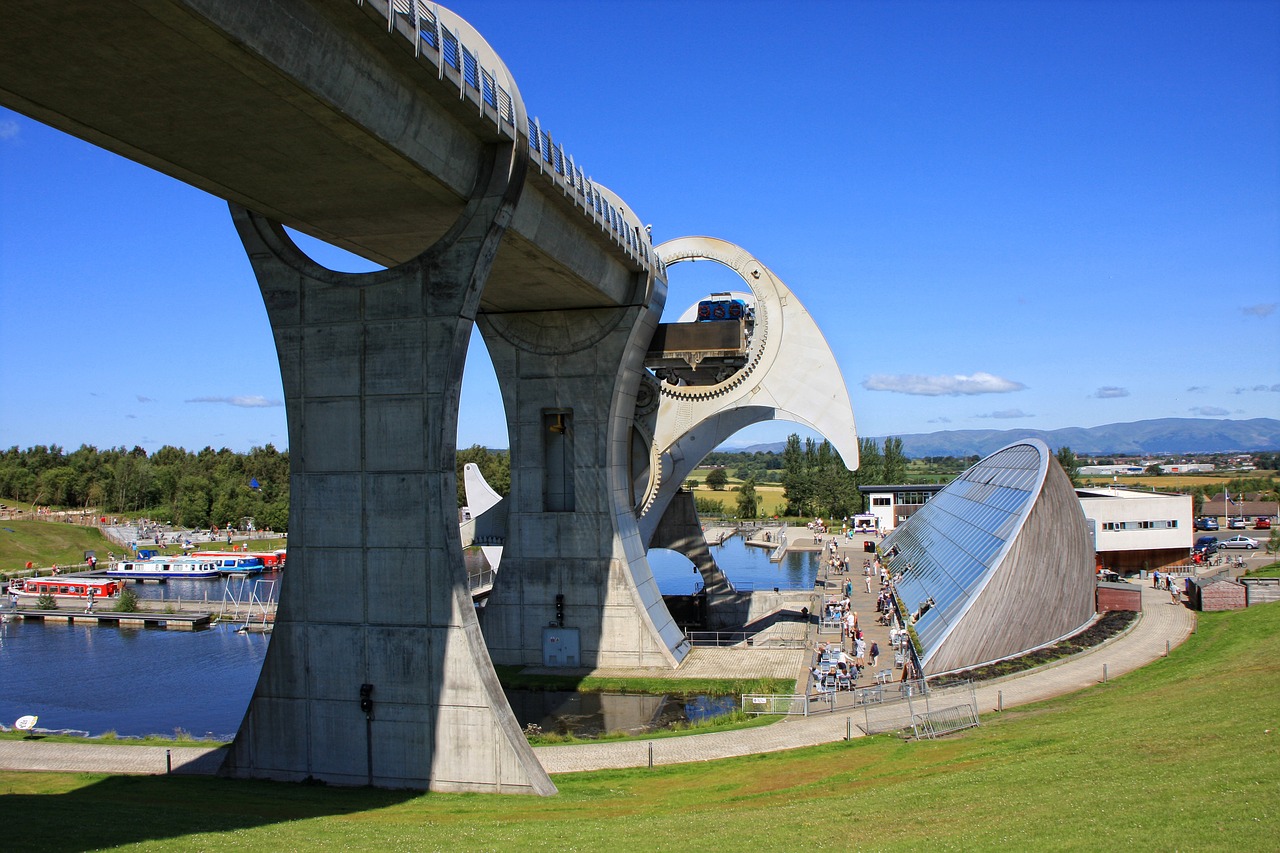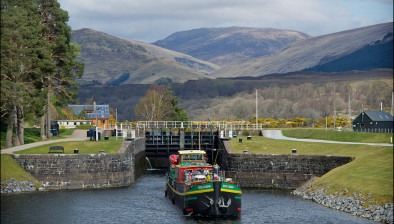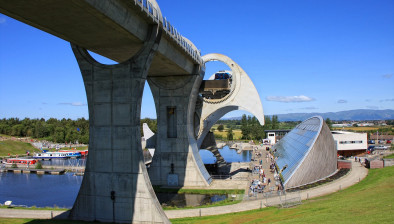Falkirk Wheel solar panels plan will help Scottish Canals reach net zero by 2030
Scottish Canals has announced plans to reach net zero by 2030 with a £250,000 of green investment into The Falkirk Wheel.

The public body’s investment will see 85 new solar panels installed at the world’s only fully rotating boatlift, generating up to 18,000kWh per annum, saving the equivalent of 5.5 tonnes of carbon dioxide emissions each year. The latest investment at Falkirk Wheel adds to the energy efficient structure which requires the electrical equivalent of boiling eight kettles to turn the 1,800-tonne steel wheel.
Transport minister Graeme Dey MSP joined Scottish Canals’ CEO Catherine Topley at The Falkirk Wheel yesterday where she unveiled the organisation’s ambitious plans to become carbon neutral within ten years.
In addition to the solar panels, new air source heat pumps will be installed on the world-renowned attraction alongside sub-metering to track renewable energy generation in real time and this will be on display in the newly refurbished visitor centre.
This first phase new green measures will see the gradual phasing out of gas fired boilers at The Falkirk Wheel. The solar panels and air source heat pumps will be installed by the end of the financial year, as a result 2022/23 will be the organisation’s greenest year yet.
The green investment at The Falkirk Wheel follows Scottish Canals’ gradual transition to a new fleet of electric vehicles last year. The organisation benefited from the Scottish Government’s Switched On Fleets grant enabling them to procure 19 electric vans deployed across the canal network. The new electric vans, which are used by Scottish Canals’ operational staff daily and are estimated to save 15 tonnes of carbon in the first year alone.
The canal network which has over 22m visits each year is a hub of activity with visitors taking to the canal by boot, bike and boat. Those who visit The Falkirk Wheel will now be able to enjoy locally sourced produce at the café or even take a spin on a Forth electric hire bike down to the Kelpies.
Transport minister Graeme Dey MSP said: “I am pleased to join Scottish Canals in announcing its plans to reach net zero for direct carbon emissions by 2030 – which continue with the latest green investments at the Falkirk Wheel.
“Over 500,000 visitors a year to the Falkirk Wheel will be able to see the live effect of renewable energy generation at the site. Scottish Canals continues to invest in zero emission vehicles, working collaboratively on climate adaptation infrastructure and the promotion of sustainable tourism and active travel.
“It is this collaborative approach which will support Scotland in meeting its world leading target of net zero emissions by 2045.”
Catherine Topley, chief executive officer of Scottish Canals, said: “Our canals were once the lifeline of the industrial revolution transporting coal and other materials to power factories and industries in cities. Now Scottish Canals are at the forefront of the green revolution. Our ambition is matched only by our determination to deliver a cleaner, greener future than that which we inherited.
“Our canals were one of the very first sustainable transport networks in the country, using only 20% of the energy required to travel on land. 250 years on from their creation they remain a beacon for sustainable transport, tourism and economic growth on land and water.
“Our journey to Net Zero is practical and collaborative, we are working with our partners to create change within communities where carbon reduction, nature-based solutions and health benefits are at the forefront of our plans and not in hindsight.”
Later this year Europe’s first Smart Canal will celebrate its inaugural housing connection that will see surface water run off safely drained in to the Forth & Clyde Canal in North Glasgow. The North Glasgow Integrated Water Management System (NGIWMS) known as the ‘Glasgow Smart Canal’ uses a predicative weather management system to lower the water levels in the canal enabling surface water to drain into the canal. The first connection will take place in the city in the run up to COP26.
The £17m project which is being delivered by Scottish Canals, Scottish Water and Glasgow City Council will not only make the city more resilient to climate change related flood events but save an estimated 30,000 tonnes of operational carbon emissions. The project has unlocked 110 hectares of land around the city enabling the construction of 3,000 new houses to deliver 20-minute neighbourhoods.
In 2023 Scottish Canals will be opening a new low carbon canal centre of excellence in Falkirk.























